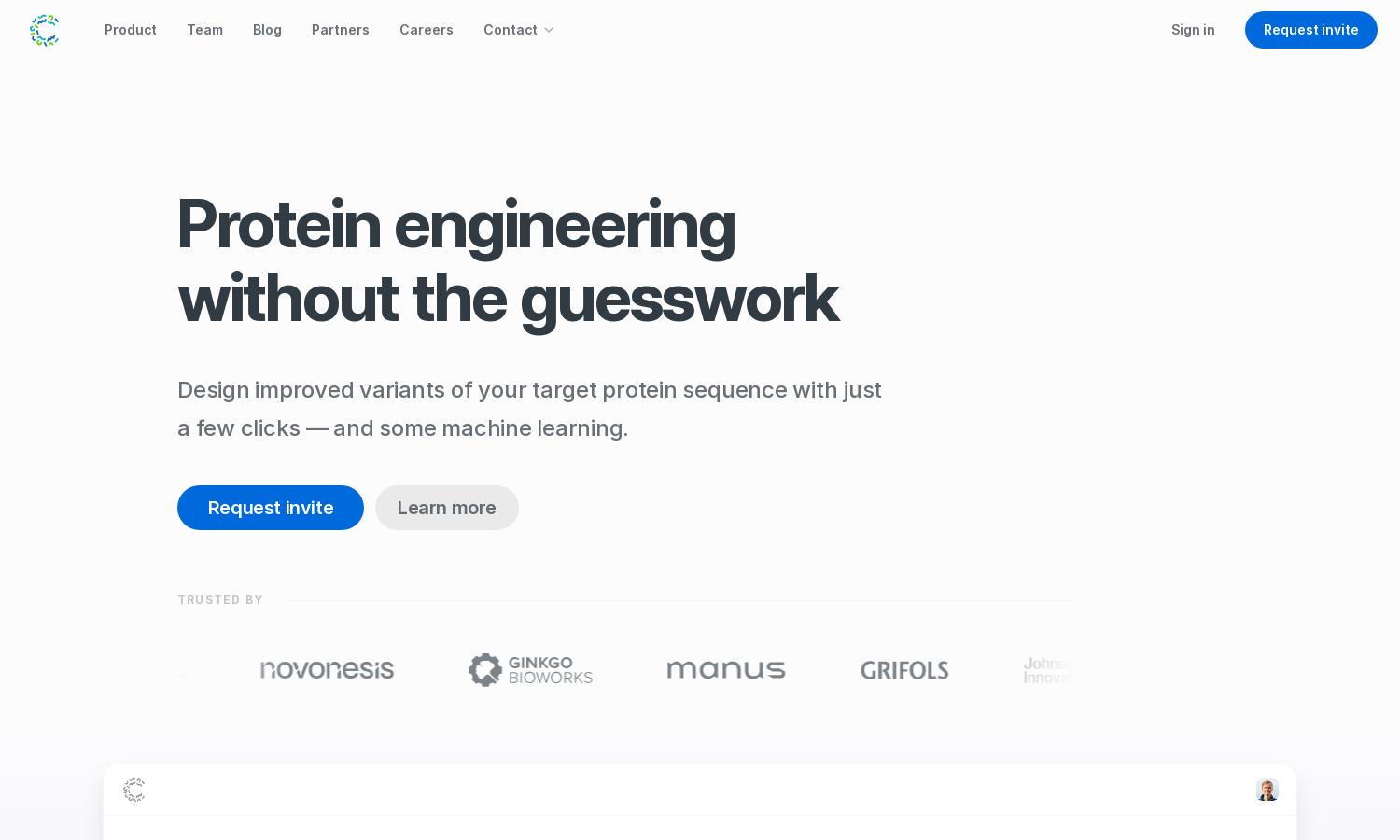Cradle

About Cradle
Cradle is revolutionizing protein engineering for biotech teams, enabling rapid design of optimized protein variants through an intuitive interface. Users set up objectives, generate sequences, and assess performance scores, enhancing efficiency. With Cradle's machine learning capabilities, teams can expedite lab workflows and achieve superior results.
Cradle offers a straightforward pricing model with a flat annual fee for all users. This includes full access to powerful tools without hidden costs or royalties. By choosing Cradle, users benefit from ongoing updates and support, ensuring they maximize their experiment's potential while saving costs.
Cradle's user interface is designed for seamless navigation, making protein design accessible to all users. The layout combines simplicity and functionality, enabling users to set objectives, generate sequences, and access lab results effortlessly. With an intuitive design, Cradle enhances the user experience while delivering powerful optimization features.
How Cradle works
Users interact with Cradle by first setting up their project's objectives and assay parameters. Next, they generate optimized protein sequences using Cradle's advanced machine learning models. Once laboratory testing is complete, users can easily import results into the platform, where the system analyzes data to continuously improve future designs and provide performance predictions.
Key Features for Cradle
Predictive Performance Scoring
Cradle's predictive performance scoring feature enhances protein engineering by providing users with estimated performance metrics for generated variants. This innovative capability allows scientists to prioritize which sequences to test in the lab, streamlining research efforts and improving overall experiment efficiency.
Multi-Property Optimization
Cradle supports multi-property optimization, enabling users to optimize various traits simultaneously. This ability accelerates the design process by combining multiple goals into a single experimental round. With Cradle, researchers can achieve comprehensive results faster and more efficiently, enhancing the protein design process dramatically.
Data Privacy and Security
Cradle emphasizes data privacy and security, ensuring that users retain full ownership of their sequences and experimental data. Each project is secure and only accessible to authorized team members. This commitment to privacy allows users to innovate confidently without worrying about data misuse or shared resources.








